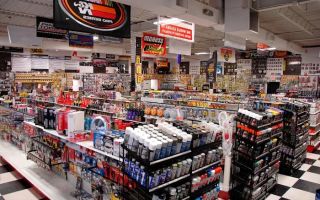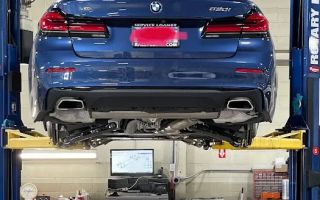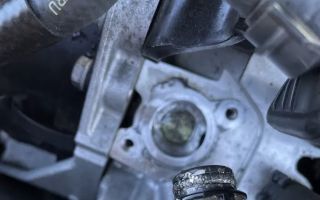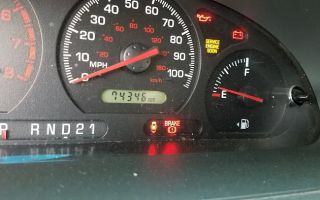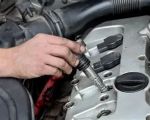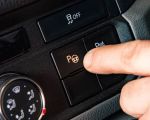- understanding-car-usb-ports - How car USB systems work
- symptoms-of-an-intermittent-usb-port - Recognizing unstable charging signs
- common-causes-of-intermittent-usb-issues - Why your USB connection fails
- step-by-step-troubleshooting - How to fix your car’s USB charging port
- real-driver-experiences - Real cases and lessons learned
- preventive-measures - How to keep your USB port working reliably
- when-to-visit-rescue-and-towing - Getting professional help for electrical issues
1. Understanding Car USB Charging Ports
Modern vehicles often come equipped with USB ports designed to power your devices, play music, or even integrate with infotainment systems. These ports rely on the vehicle’s electrical system, often sharing circuits with other components like the radio or cigarette lighter. When your car’s USB port becomes intermittent, it can be both frustrating and concerning, especially if you rely on it for navigation or communication.
Understanding how these ports function helps you diagnose issues more effectively. They are typically powered by a 5-volt supply regulated by a module or fuse connected to the car’s main electrical system. When any component in this chain is unstable — from loose wiring to software glitches — the USB connection may fail or behave erratically.

House of Imports
6862 Auto Center Dr, Buena Park, CA 90621, USA
2. Symptoms of an Intermittent USB Charging Port
An intermittent USB port doesn’t always fail completely; instead, it may fluctuate between working and not working. Drivers often report that their phone charges for a few minutes before disconnecting or that the infotainment system frequently loses the USB connection. Recognizing these signs early can help prevent larger electrical problems.

Pick Your Part - Help Yourself
1232 Blinn Ave, Wilmington, CA 90744, USA
2.1 Intermittent Charging or Connection Drops
The most common symptom is when your phone or device repeatedly connects and disconnects. You may hear the charging sound or see your screen flicker as power cuts in and out. This typically indicates a loose connection or voltage fluctuation.
2.2 USB Port Works with Some Cables but Not Others
If your USB port works inconsistently depending on the cable, the problem may not lie with the car but with the cord itself. Low-quality or damaged cables can lead to unreliable power delivery and data transmission.
2.3 Devices Overheating or Charging Slowly
When a USB port provides inconsistent voltage, connected devices can overheat or charge very slowly. This is a sign of underlying power instability that needs attention before it worsens.
3. Common Causes of Intermittent USB Port Issues
There are several reasons why a car’s USB port might behave inconsistently. These can range from simple dirt buildup to complex wiring problems. Below are the most common causes:
3.1 Loose or Corroded Connections
Over time, vibrations from driving can loosen the USB connector or corrode the metal contacts. Moisture, spilled drinks, or even dust can accelerate this process. Cleaning the port gently with compressed air or an electronic contact cleaner often restores functionality.
3.2 Damaged USB Cable or Plug
One of the easiest issues to overlook is a faulty USB cable. A bent or frayed connector can cause intermittent contact, disrupting charging and data transfer. Always test with a new, certified cable before assuming the port itself is bad.
3.3 Electrical or Software Glitches
Some modern cars rely on digital control modules to manage USB power. A software glitch or temporary surge may cause the system to malfunction. In such cases, resetting the car’s infotainment system or disconnecting the battery for a few minutes can help.
3.4 Blown Fuse or Faulty Wiring
If your USB port has stopped working entirely, a blown fuse or damaged wiring could be the culprit. Each USB circuit is protected by a fuse, usually located in the fuse box under the dashboard or hood. Checking and replacing the fuse is a simple yet effective first step.
4. Step-by-Step Troubleshooting
Before heading to a mechanic, try these steps to identify and possibly fix the issue yourself. Many drivers successfully resolve USB problems at home with basic tools and patience.
4.1 Step 1: Test with Different Devices and Cables
Begin by plugging in a different cable or device. If the new combination works fine, your original cord or device may be the issue. Avoid cheap cables — opt for those certified by your device manufacturer.
4.2 Step 2: Inspect and Clean the Port
Turn off your vehicle and use a flashlight to inspect the USB port. Look for dirt, lint, or corrosion. Use a soft brush or compressed air to clean it gently. Avoid metal tools, as they can damage the delicate contacts inside.
4.3 Step 3: Check for Software Updates
Some vehicles require firmware updates for their infotainment systems, which can resolve connectivity issues. Visit your vehicle manufacturer’s website or consult your dealership to ensure your software is up to date.
4.4 Step 4: Check the Fuse
Refer to your car’s manual to locate the fuse controlling the USB port. If the fuse is blown, replace it with one of the same amperage. If it blows again soon after replacement, there may be an underlying short circuit.
4.5 Step 5: Reset the System
If none of the above steps work, try resetting the infotainment system or disconnecting the car battery for 5–10 minutes. This can clear minor electronic glitches and restore proper function.
5. Real Driver Experiences
One driver from Texas shared how her USB port would randomly disconnect while using GPS on long trips. After multiple cable replacements, a mechanic discovered a corroded contact inside the port due to a spilled drink months earlier. Once cleaned, the port worked perfectly again.
Another driver reported an issue with his USB port failing after installing a dashcam that drew extra power from the same circuit. A simple fuse replacement and rerouting of the dashcam wiring fixed the problem permanently. These stories highlight how small issues can escalate when overlooked.
6. Preventive Measures to Keep Your USB Port Reliable
To prevent your car’s USB charging port from becoming intermittent again, follow these proactive tips:
6.1 Use High-Quality Accessories
Always use certified cables and adapters that match your device specifications. Cheap accessories can cause power fluctuations and reduce your port’s lifespan.
6.2 Keep the Port Clean and Dry
Regularly clean your USB port and protect it from moisture or food spills. Small particles can disrupt connectivity and cause corrosion over time.
6.3 Avoid Overloading the Circuit
Do not connect too many devices to one circuit. Overloading can cause overheating, voltage drops, and potential damage to your USB system.
7. When to Visit Rescue & Towing
If your USB charging port continues to malfunction despite following the troubleshooting steps, it’s time to consult professionals. The skilled technicians at Rescue & Towing specialize in diagnosing and repairing automotive electrical systems. They can determine whether the issue lies in the port itself, the wiring, or a deeper electrical component, ensuring your car remains safe and functional.
Whether it’s a simple fix or a complex wiring replacement, Rescue & Towing provides reliable solutions that get you back on the road with confidence. A properly functioning USB port isn’t just a convenience — it’s an essential part of modern driving comfort and safety.



